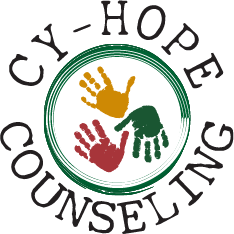Non-traditional Therapies Indicated for Mental Illness
I’ve noticed anecdotally over the last few years that more people have been willing to seek treatment through therapy for a variety of concerns: mental illness, grief, family conflicts, life adjustments. As a counselor, I am so glad that people are more willing to seek the help they need. What most people aren’t aware of is that there are a variety of different kinds of therapies that may be a good introduction before they seek one-on-one psychotherapy, or “talk therapy” or great additions to your therapy journey!
Equine therapy- Equine therapy is a mesh between psychotherapy and animal assisted therapy. Horses tend to be so in tune with our emotions that a counselor can use cues from the horse to help a client understand what their current emotional experience may be. Equine therapy is also beneficial because research has shown that being around animals can lower our heartrates, which in turns, lessens our sympathetic response, or fight-or-flight response that occurs with anxiety. Equine therapy is often administered by therapists who are especially trained in working with both people and horses.
Expressive arts therapy- Expressive arts uses a variety of mediums to help an individual interact with their emotions in a different way. I often find people have difficulty putting words to their emotions. The process often tends to be the focus and the final product can tell a powerful story. Expression may occur in the form of various types of art such as painting, coloring, mixed-media, or other 3D projects. Expression may also occur in the form of movement such as dance or choreography. I have also experienced clients express themselves through writing songs and lyrics. Expressive arts clinician will hold a license to practice psychotherapy, art therapy, or expressive arts therapy.
Activity therapy- What a great way to de-stress and feel connected to others and the community than getting out and participating in mind-engaging activities such as sports, games, and even arts and crafts! Sometimes you’ll find activity therapists bringing in specially trained therapy dogs to create a fun and soothing environment. Looks for board certified activity therapist so you can practice activity therapy safely.
Music therapy- Music therapy can take a number of modalities such as playing music, writing music, or identifying music that relates to present emotion. Look for board certified music therapists to get the most of your experience.
Yoga- Yoga has become a treatment recommendation of mine for so many of my clients. Yoga helps keep an individual active which is so great for stimulating neurotransmitter creation. Yoga also emphasizes mindfulness which research has indicated in many illnesses including depression, anxiety, and eating disorders. Mindfulness is the practice of being aware of your present moment (instead of all those anxious thoughts in your past or future!) Mindfulness has been proven to reduce heartrate and return the body from a stressed out mess to homeostatic peace.
Nutrition therapy- I recommended nutrition therapy to most of my clients. Provided by registered dieticians, nutrition can help individuals with eating disorders correct disordered eating, help patients on psychotropic medications manage side effects, and all individuals live a healthy lifestyle. Dieticians can even help you with cooking at home, making healthy choices at restaurants, and work alongside your doctor to monitor medical conditions. Make sure to look for a registered dietician, a state protected title. Virtually anyone can call themselves a nutritionist. This therapy is often covered under insurances.
Massage therapy- Anxiety and depression can often increase tension in our muscles, massage therapy helps work out this tension and counter the constant state of tension and stress our bodies experience. Check for a registered massage therapist credential so you can get the highest quality care.
Group therapy- Therapy groups are different from peer lead support groups as they often involve trained therapists guiding the group. Group topics can take a variety of topics such as interpersonal process, social skills, and education. These groups are an excellent treatment modality as they help establish connection, altruism, and universality. In other words, you are not alone in your journey and you have the power to help others through sharing your story.
Written by: Kristina Zufall, M.Ed., LPC-Intern
